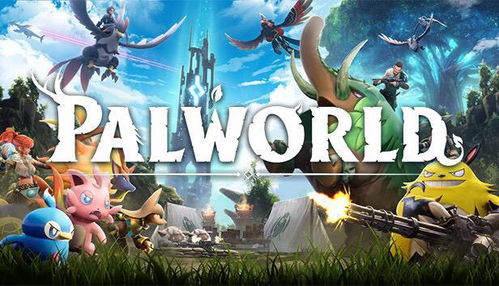Understanding the Revenue Streams of Jurassic World: The Game

Jurassic World: The Game, developed by Ludia and published by Universal Pictures Digital Studios, has become a significant moneymaker since its release in 2018. This article delves into the various dimensions of how the game has been making money, providing you with a comprehensive overview.
Game Sales and Upfront Purchases

One of the primary ways Jurassic World: The Game generates revenue is through game sales. Players can purchase the game on various platforms such as PlayStation, Xbox, Nintendo Switch, and PC. The initial purchase price varies depending on the platform, but it typically ranges from $19.99 to $29.99.
Additionally, the game offers different versions, including the Standard Edition, Digital Deluxe Edition, and the Jurassic World: The Game 鈥?Complete Edition. The Deluxe Edition includes bonus content like skins, avatars, and in-game items, while the Complete Edition includes all the game’s expansions and content from the start.
In-Game Purchases and Microtransactions

Jurassic World: The Game employs a free-to-play model, which means players can download and play the game without any initial cost. However, the game also offers in-game purchases and microtransactions to enhance the player experience.
Players can buy various in-game items, such as coins, gems, and dinosaur eggs, which can be used to unlock new dinosaurs, upgrade existing ones, and purchase other in-game resources. These purchases range from a few dollars to tens of dollars, depending on the item and the quantity.
Expansion Packs and Dinosaur Packs
Another revenue stream for Jurassic World: The Game is the release of expansion packs and dinosaur packs. These packs introduce new content, including new dinosaurs, maps, and gameplay features. Players can purchase these packs individually or as part of a bundle.
For example, the Jurassic World: The Game 鈥?Jurassic World Evolution Expansion Pack was released in 2019 and included new dinosaurs, maps, and gameplay mechanics inspired by the Jurassic World Evolution game. These expansion packs are typically priced between $19.99 and $29.99.
Merchandise and Licensing
Jurassic World: The Game has also generated revenue through merchandise and licensing. The game’s popularity has led to the creation of various Jurassic World-themed products, such as clothing, toys, and collectibles. These items are sold through various retailers and online platforms.
Additionally, the game’s licensing agreements with other companies have allowed for the creation of Jurassic World: The Game-branded products, further boosting the game’s revenue.
Advertising and Sponsorships
Advertising and sponsorships are another way Jurassic World: The Game has been making money. The game features various advertisements, including in-game billboards and sponsorships with other companies. These partnerships help offset the game’s development and maintenance costs.
Subscription Model
In 2020, Jurassic World: The Game introduced a subscription model, allowing players to access all the game’s content for a monthly fee. This model provides players with unlimited access to new dinosaurs, maps, and other in-game features, as well as exclusive benefits like early access to new content.
The subscription fee for Jurassic World: The Game is $4.99 per month, and players can cancel their subscription at any time. This model has proven to be a successful revenue stream, as it provides a steady income for the game’s developers and publishers.
Community and Player Engagement
Lastly, the success of Jurassic World: The Game can be attributed to its strong community and player engagement. The game’s developers have been actively listening to player feedback and continuously updating the game with new content and features. This has helped maintain player interest and retention, leading to increased revenue through purchases and subscriptions.
In conclusion, Jurassic World: The Game has been making money through various revenue streams, including game sales, in-game purchases, expansion packs, merchandise, advertising, sponsorships, and a subscription model. The game’s success can be attributed to its engaging gameplay, strong community, and continuous updates, making it a valuable asset for both Ludia and Universal Pictures Digital Studios.
